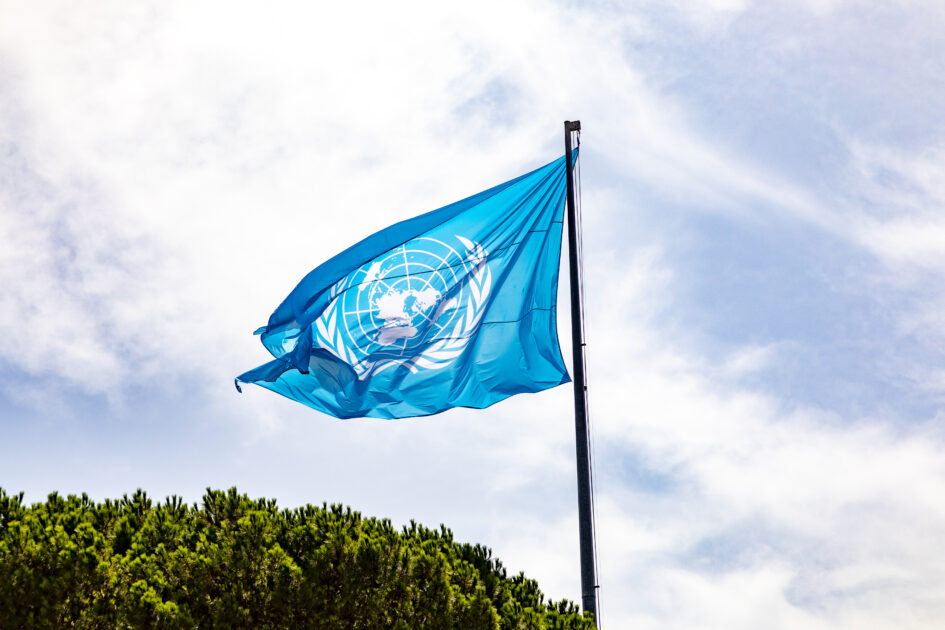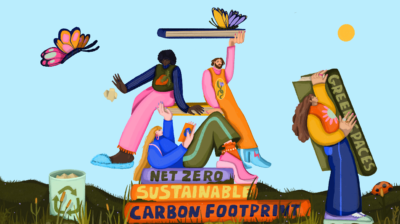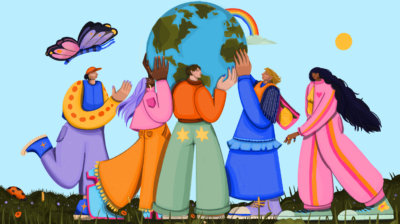What is COP28?
Learn about the Conference of the Parties (COP) and why it’s important for international climate action.

The United Nations Climate Change Conference, also known as the Conference of the Parties (COP), is a large meeting of governments from all over the world. These governments are members of the United Nations Framework Convention on Climate Change (UNFCCC). At these conferences, governments assess international progress towards the goal of the Paris Agreement to limit the rise in global temperatures.
The first conference (COP1) was held in Berlin in 1995. The conference is the largest annual event held by the United Nations. Thousands of people attend, including government, civil society, international organisations, non-governmental organisations and the media. The conference this year is called COP28.
The UNFCCC and COP28
The UNFCCC is an international environmental treaty that aims to address the negative impact of human activity on the climate. Its aim is to reduce the amount of greenhouse gases in the Earth’s atmosphere. Greenhouse gases produced by human activity, such as burning fossil fuels, trap heat in the atmosphere, causing global warming and climate change.
The UNFCCC treaty recognises that global cooperation is essential to reduce greenhouse gas emissions. 198 countries, including Ireland, have ratified the Convention. This means they are bound to the treaty. COP is the decision-making body of the UNFCCC. The COP meets once a year to measure progress and negotiate different ways of combating climate change.
How is COP organised?
The host country in which the COP takes place usually changes every year. It rotates between the five UN regional groups.
These groups include:
- The African Group
- The Asia-Pacific Group
- The Eastern Europe Group
- The Latin American and Caribbean Group
- The Western European and Others Group
Members of the host region elect a President. The President’s role is to ensure the conference runs smoothly. They work to build effective international relationships between country delegations, institutions, businesses and stakeholders. The aim is to achieve agreement on key climate issues.
The UN Climate Change Secretariat handles the organisational duties of the conference. The Secretariat is made up of administrative staff from all over the world and headed by the Executive Secretary.
Each member state sends an official group of representatives to participate in the conference and promote their country’s interests and perspectives. This is called a delegation. Ireland’s national delegation to COPs usually includes the Taoiseach and the Minister for Environment, Climate and Communications, as well as other government officials. Representatives from Irish environmental organisations and youth delegates often attend COPs too.
What does the conference try to achieve?
The COP is the biggest international stage for discussing climate action. It highlights the need for a collective and fair approach to dealing with the climate crisis. Each year, world leaders come together in the hopes of agreeing on a new international agreement on taking climate action. Climate activists, experts and other influential members of society also take part in events like panel discussions, exhibitions and protests.
In 2015, COP21 saw the adoption of the Paris Climate Agreement. This is the most ambitious international climate treaty to date. The overall aim of the agreement is to keep the global temperature rise well below 2 degrees celsius. It also aims to make significant efforts to limit temperature increase to 1.5 Celsius above pre-industrial levels. This is the level before the Industrial Revolution when we started burning fossil fuels in factories.
Under the agreement, countries must take significant steps towards reducing their greenhouse gas emissions. However, the effectiveness of the Paris Agreement has been questioned. Many member states, including Ireland, are failing to deliver on their targets. Learn more about the Paris Climate Agreement.
Does COP achieve its goals?
There are a lot of competing interests and power imbalances between countries, industries and stakeholders at COP. This means that negotiations are often intense and their outcomes can be disappointing for those campaigning for strong and meaningful climate action. For example, at past COPs, wealthy countries deliberately delayed the setting up of a loss and damage fund. A loss and damage fund would pay for the destruction that climate-vulnerable countries have to deal with as a result of climate change.
Fossil fuel lobbyists have an influential presence at the conferences and have previously managed to block legislation that would see a reduction in the use of gas and oil. These delays and obstructions are made at the expense of populations who have the most to lose if the goals of the conference are not met. These populations include Small Island Developing States (SIDS) like Kiribati in the Pacific Ocean, indigenous and nomad communities, women and young people.
COP28 and the Global Stocktake
COP28 will take place from the 30th of November until the 12th of December 2023. It will be hosted by the United Arab Emirates (UAE) in Dubai. The President-designate (incoming president) for COP28 is Dr. Sultan Ahmed Al Jaber. The main focus of this year’s COP will be the Global Stocktake.
The Global Stocktake will measure our collective progress towards the Paris Agreement goals decided in 2015. This will help governments to see what their climate policies have achieved so far. Governments will also be able to assess what they must do to meet their targets. Alongside the Global Stocktake, COP28 will feature a two-week programme of events across four core themes.
The themes of COP28:
- Technology and Innovation
- Inclusion
- Frontline Communities
- Finance
Issues with COP28
There are concerns that the UAE and the President-designate are unsuitable to lead COP28. The UAE is one of the world’s largest producers of oil. Dr. Sultan Ahmed Al Jaber is the head of the Abu Dhabi National Oil Company (ADNOC). ADNOC plans to expand its production despite the President-designate supporting calls for a reduction in fossil fuels. There are also concerns about the safe participation of climate protesters given the UAE’s track record of human rights abuses.
Make your voice heard at COP28
If you would like to get involved with COP28, you can contact government ministers or your local TD. Let them know what issues you think Ireland should prioritise during the conference. Emphasise that Ireland should support every effort to take strong, ambitious climate action at COP28.
Before getting in touch with a politician, research your idea. Find out the most pressing climate issues surrounding COP28 and how governments can address them. Here are some of the issues many people are demanding action on at COP28:
- A complete phaseout of fossil fuels
- A just transition towards a greener future that leaves no one behind
- A Loss and Damage fund set up to pay for the destruction that climate-vulnerable countries have to deal with as a result of the climate crisis
- Increased efforts to boost climate resilience and adapt to the effects of the climate crisis as they worsen across the world
- The empowerment and equal participation of groups who are usually left out of climate decision-making, such as young people and indigenous communities, in COP28
Learn more about how to contact politicians about the climate crisis.
Feeling overwhelmed and want to talk to someone?
- Get anonymous support 24/7 with our text message support service
- Connect with a trained volunteer who will listen to you, and help you to move forward feeling better
- Whatsapp us now or free-text SPUNOUT to 50808 to begin.
- Find out more about our text message support service
If you are a customer of the 48 or An Post network or cannot get through using the ‘50808’ short code please text HELLO to 086 1800 280 (standard message rates may apply). Some smaller networks do not support short codes like ‘50808’.






